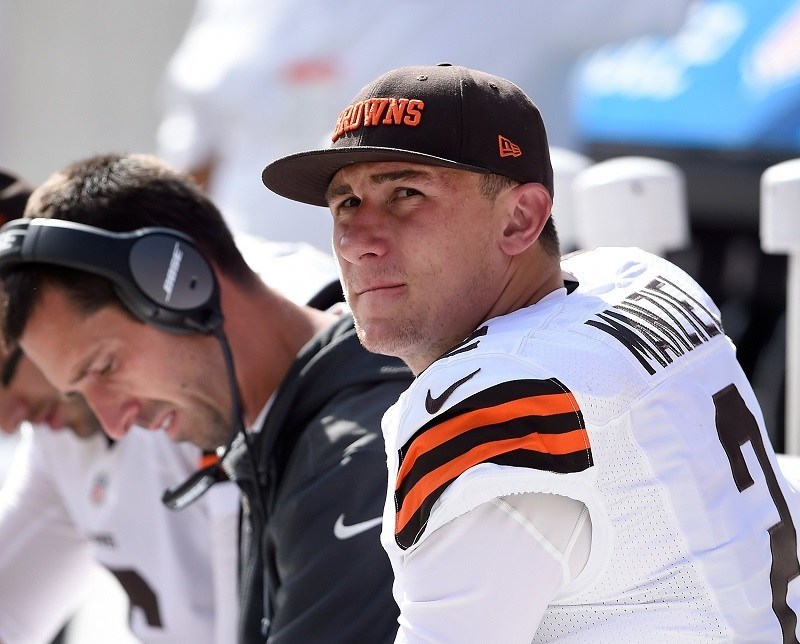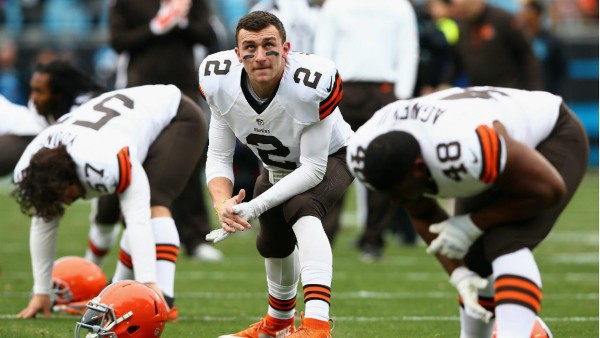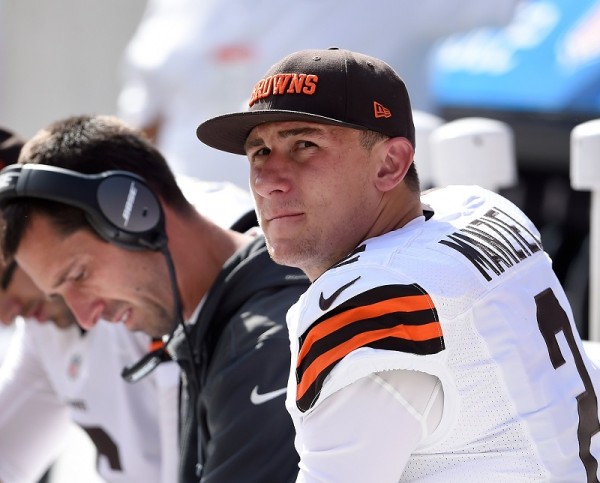
Anyone who’s known someone who’s gone to rehab for alcohol or drug abuse, or even just for depression knows that the person coming out is very very different from the person who went as is the case with Cleveland Brown’s troubled quarterback Johnny Manziel. Many on the team have admitted to knowing that Manziel had problems long before anyone would admit something was wrong which only made things worse. The quarterback was thrust into the spotlight the minute his name entered the draft and as many before him know, it’s a harsh spotlight to fall under. Everything you do is under scrutiny and for those that have any amount of demons within them, celebrity only heightens them.
Once Johnny Manziel makes his expected return to the Cleveland Browns later this month after an extended stay at a rehabilitation facility, it might seem like life is back to normal.
But what Johnny Football has likely learned during his treatment — and what his coaches, teammates and team officials must realize — is that the real work is just beginning for their young quarterback.
“How easy is it going to be for him to put his recovery first? Because if he doesn’t put his recovery first, and I mean over everything — over football, over everything he has going on in his life — he’ll lose it all,” former Tampa Bay Buccaneers center Randy Grimes has said in interviews this past week.
Grimes now works as an interventionist at Behavioral Health of the Palm Beaches, the facility where he sought treatment for addiction to prescription pills six years ago.
“Whether they’re athletes or not, you always worry about sending people back into the same chaotic atmosphere that got them here,” added Grimes.
“Whatever those triggers may be, they are waiting for you when you get out.”
Manziel was released from rehab Saturday, a person familiar with Manziel’s situation has said to many people in the media now. That person spoke on the condition of anonymity since the club has yet to comment on Manziel’s status even through they’re telling everyone who’ll listen.
Neither Manziel’s camp nor the Browns have publicly commented about the reason that led the former Heisman Trophy winner to seek help in late January. But his notorious penchant for partying followed him from Texas A&M to the Browns, who selected him with the 22nd pick of the 2014 draft.
His well-documented escapades in the last year alone included swigging champagne from a bottle while floating on an inflatable swan in a nightclub pool; slurring his words while talking into a stack of money intended to resemble a telephone; a disturbance with a fan in the lobby of his Cleveland apartment building hours before the team traveled to a road game in November; and missing a walkthrough and treatment session for his injured hamstring after throwing a party at his condo on the final weekend of the regular season.
Combined with serious on-field struggles, those issues made Manziel’s rookie year a total bust.
So it was no surprise when one of the Browns’ most respected veteran leaders, perennial Pro Bowl left tackle Joe Thomas, recently told ESPNCleveland.com that Manziel “probably lost a lot of trust” from his teammates.
Yet Manziel’s decision to check into rehab — a choice Cleveland coach Mike Pettineand general manager Ray Farmer have said Manziel made on his own without prodding from the team — and the fact he remained in his treatment program for more than two months should provide a helpful avenue to earning back the confidence of the locker room and front office.
Manziel has begun making public appearances after weeks of silence. He played golf last weekend with his father in Shreveport, La., and showed up at a hospital this week, a visit documented by patients’ social media accounts.
But Manziel’s real re-entry into the real world post-treatment will occur when the Browns open their offseason workout program April 20.
He should expect the transition to be “jarring” according to former NFL wide receiverVance Johnson, now 19 months sober himself after struggling with alcoholism which dates back to the start of his pro career in 1985. Johnson even drank himself into a coma several years ago.
But If rehab worked for Manziel, Johnson said, he’ll be unrecognizable.
He’s going to be so different, that he’s not going to be the same player. He’s either going to be better than he was, or he’s going to be worse because of the things he has to face, and that’s my fear for him,” said Johnson, who now helps physically train recovering addicts at Behavioral Health of the Palm Beaches.
“He’s going to be a whole different man. He’ll see now that addiction either made him more brave on the field — and not care and not think because of the reckless lifestyle — or he’s going to be a Peyton Manning and go to a whole new level. It’s not going to be in between.”
By signing veteran quarterback Josh McCown in February, the Browns shouldn’t have to rush to determine what sort of player Manziel is at this stage. There will likely be some pressure for Manziel to progress and play because of the significant investment the team made in him. But the challenge now for Pettine, Farmer and even ownerJimmy Haslam is to balance Manziel’s new off-field reality with their desire to assess him as a player.
“The pride and the ego that professional athletes have, where they think that they’re always in control of everything, that hurts us, especially when it comes to recovery. Because in recovery, we don’t have any control,” Grimes said.
“I think the Browns are going to see a different person when he gets back in that locker room. He’s going to have more self-awareness, he’s going to just be a different Johnny Manziel. And I look forward to seeing who that guy is when he comes back after going through this process.”



